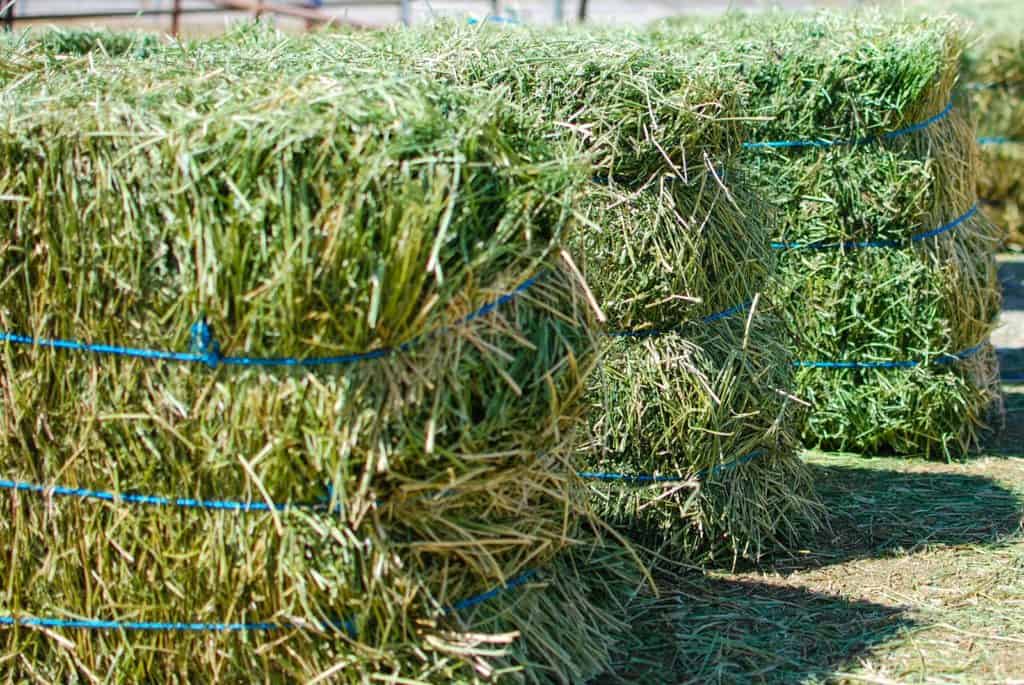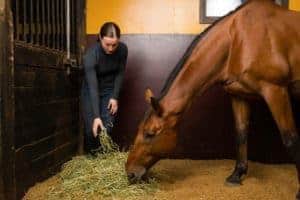4 Misconceptions About Alfalfa

Despite all the science-backed suggestions about feeding alfalfa, it remains a misunderstood forage. The following are a few misconceptions worth clarifying.
Myth: An alfalfa-rich diet causes kidney problems.
“A normal, healthy horse can metabolize and excrete the extra protein in alfalfa just fine, if the horse has adequate water,” says Ray Smith, PhD, forage extension specialist at the University of Kentucky, in Lexington. Horses with kidney disease shouldn’t consume a high-protein diet (such as alfalfa), but the alfalfa itself won’t cause kidney disease.
Myth: Alfalfa makes horses hyper.
“I don’t think there is any scientific basis for this,” says Krishona Martinson, PhD, associate professor and equine extension specialist at the University of Minnesota’s Department of Animal Science, in Falcon Heights. “Alfalfa does have more energy compared to grass hay of similar maturity, so perhaps a horse eating a lot of alfalfa in the absence of exercise may have more energy. The biggest issue with alfalfa, however, is weight gain in horses that don’t have adequate exercise.”
Myth: Alfalfa has high nonstructural carbohydrate (NSC) levels.
“Cool-season grasses like timothy, bromegrass, and orchardgrass actually have higher nonstructural carbohydrate content and sugars than legumes,” says Martinson. “Horses with carbohydrate sensitivity (e.g., obese horses, those with laminitis, equine metabolic syndrome, equine Cushing’s disease, or polysaccharide storage myopathy) need their diet carefully monitored for nonstructural carbohydrates and can benefit from including some alfalfa rather than grain or cool-season grasses.”
Myth: Alfalfa aggravates respiratory problems in horses with heaves.
Some horses tend to cough more when fed alfalfa, but this is due to irritants such as dust and mold rather than the alfalfa itself. Alfalfa can be dustier than grass hay when moisture conditions at baling are less-than-ideal. Alfalfa leaves also tend to shatter when too dry, creating more dust particles.
“Mold formation is also related to moisture content when baling,” says Martinson. “One issue with alfalfa—which tends to have more stem than grass—is that the stem takes longer to dry. Alfalfa might take 12 to 24 hours longer to dry than a grass crop, simply because it has more stems. Moldy grass hay or moldy alfalfa hay both cause airway irritation when mold dust is inhaled.”
Take-Home Message
The horse industry is full of misconceptions about alfalfa. Before dismissing this nutrient-rich forage, contact your veterinarian or equine nutritionist to develop a feeding program that’s right for your horse.
Written by:
Heather Smith Thomas
Related Articles
Stay on top of the most recent Horse Health news with
















